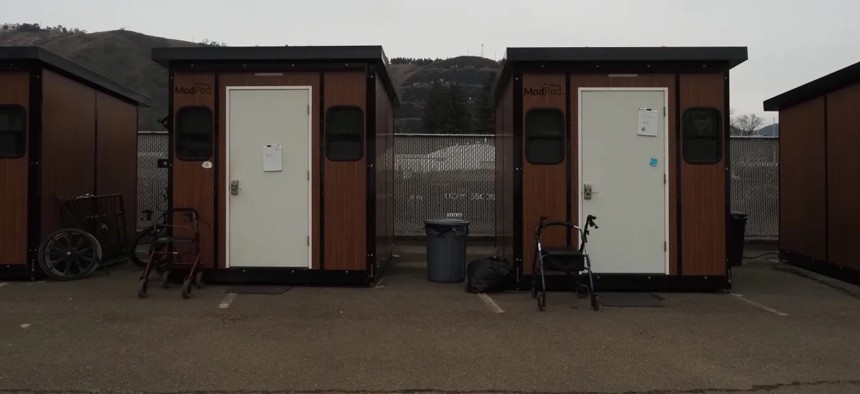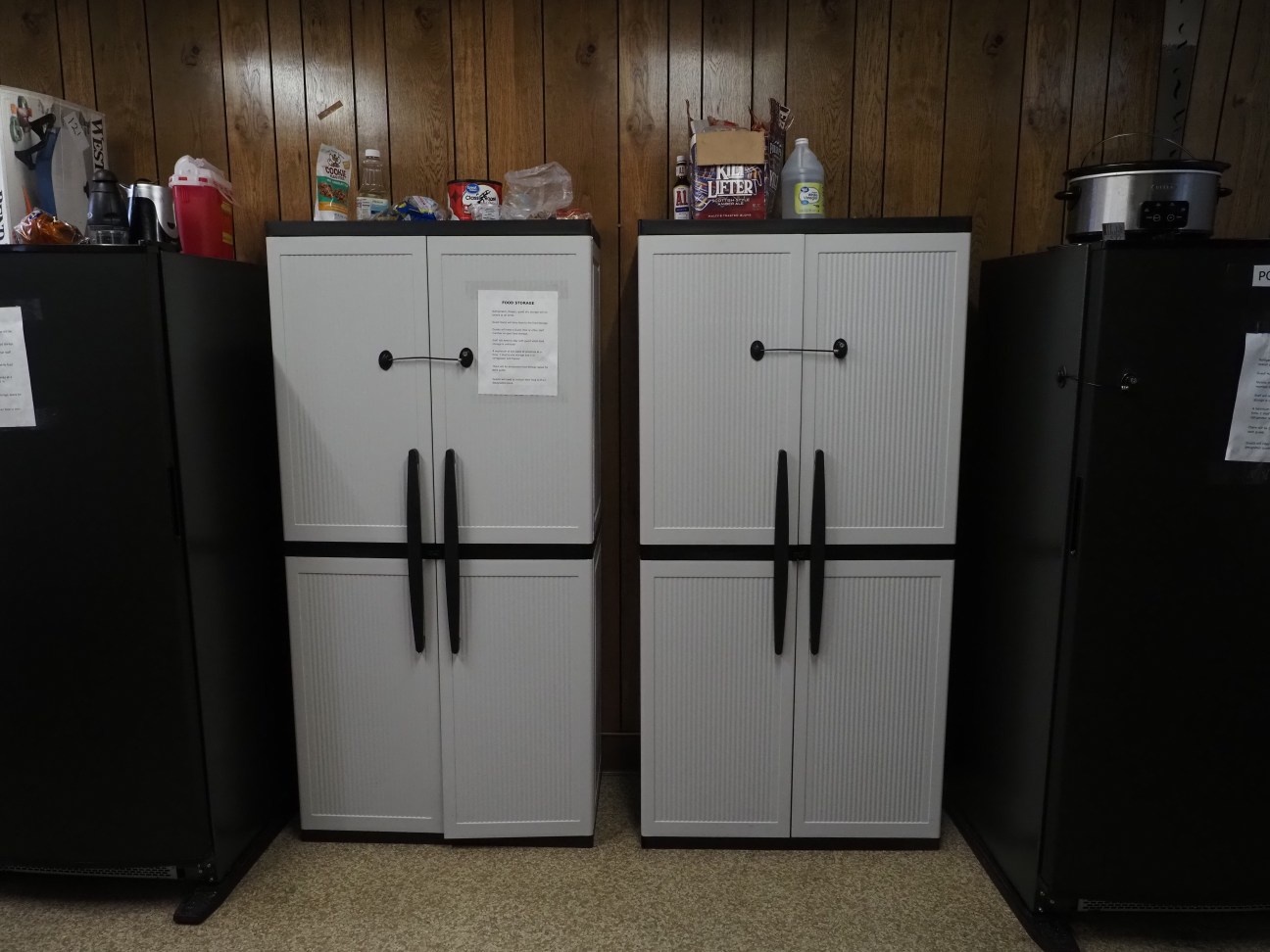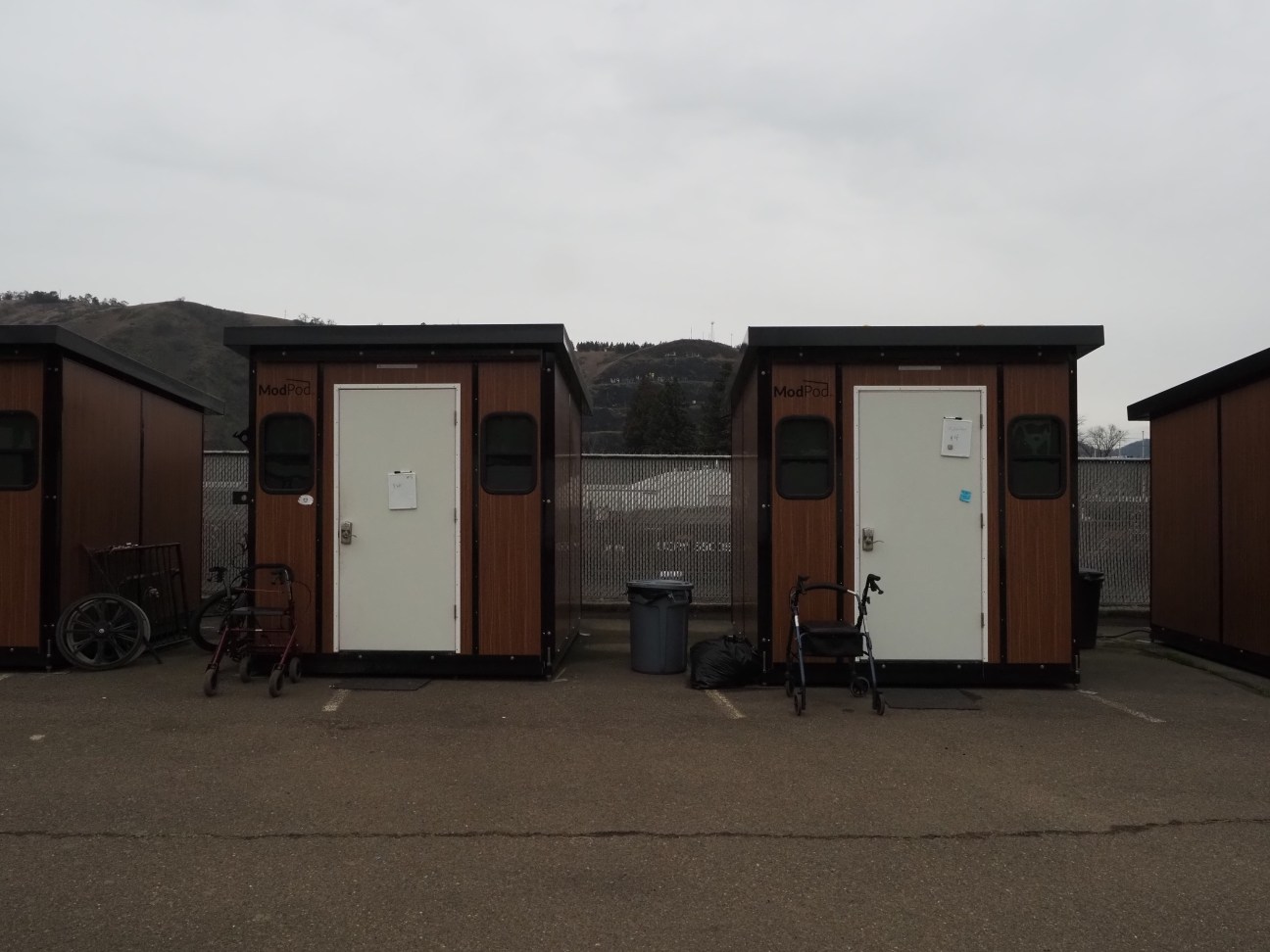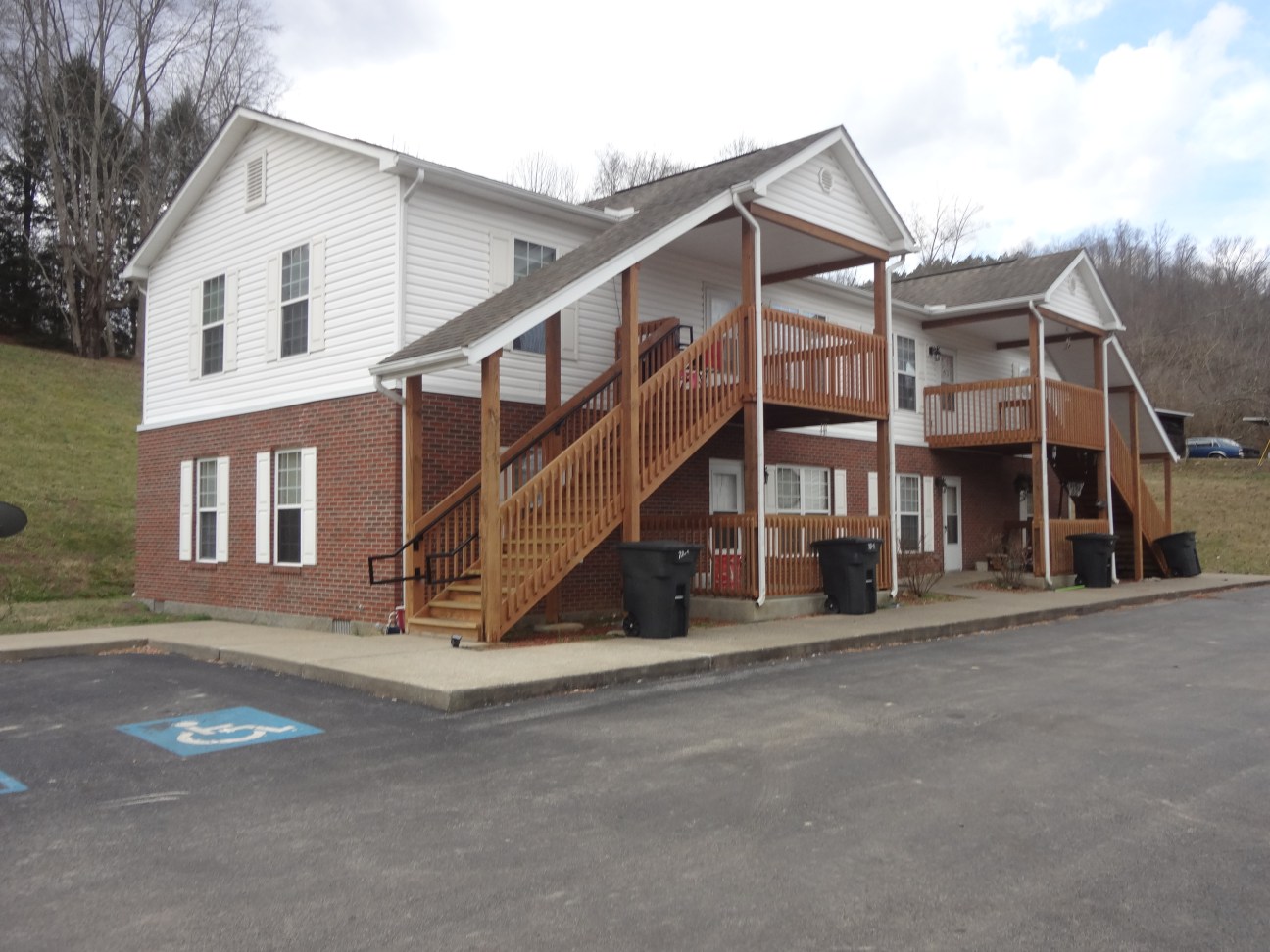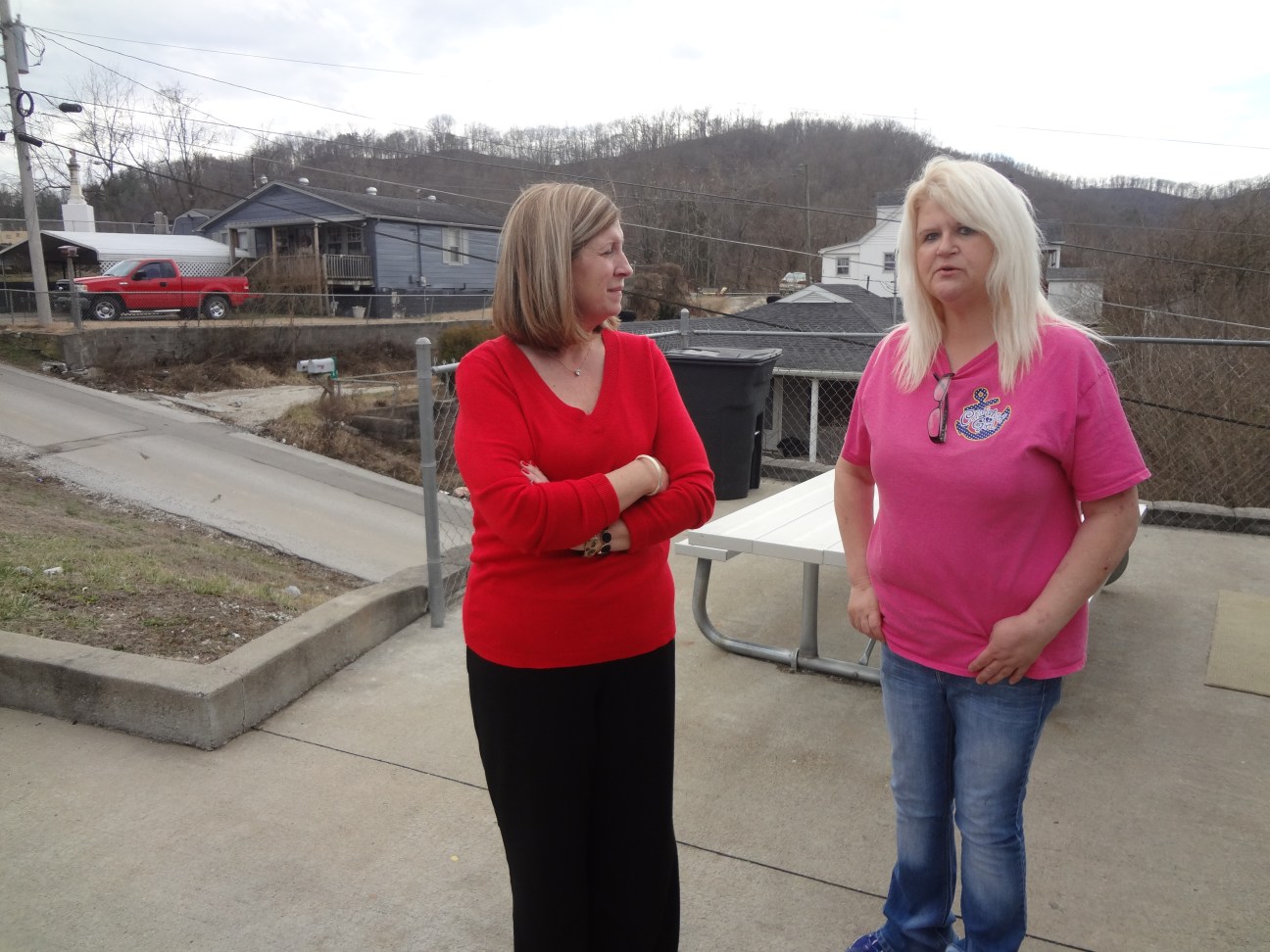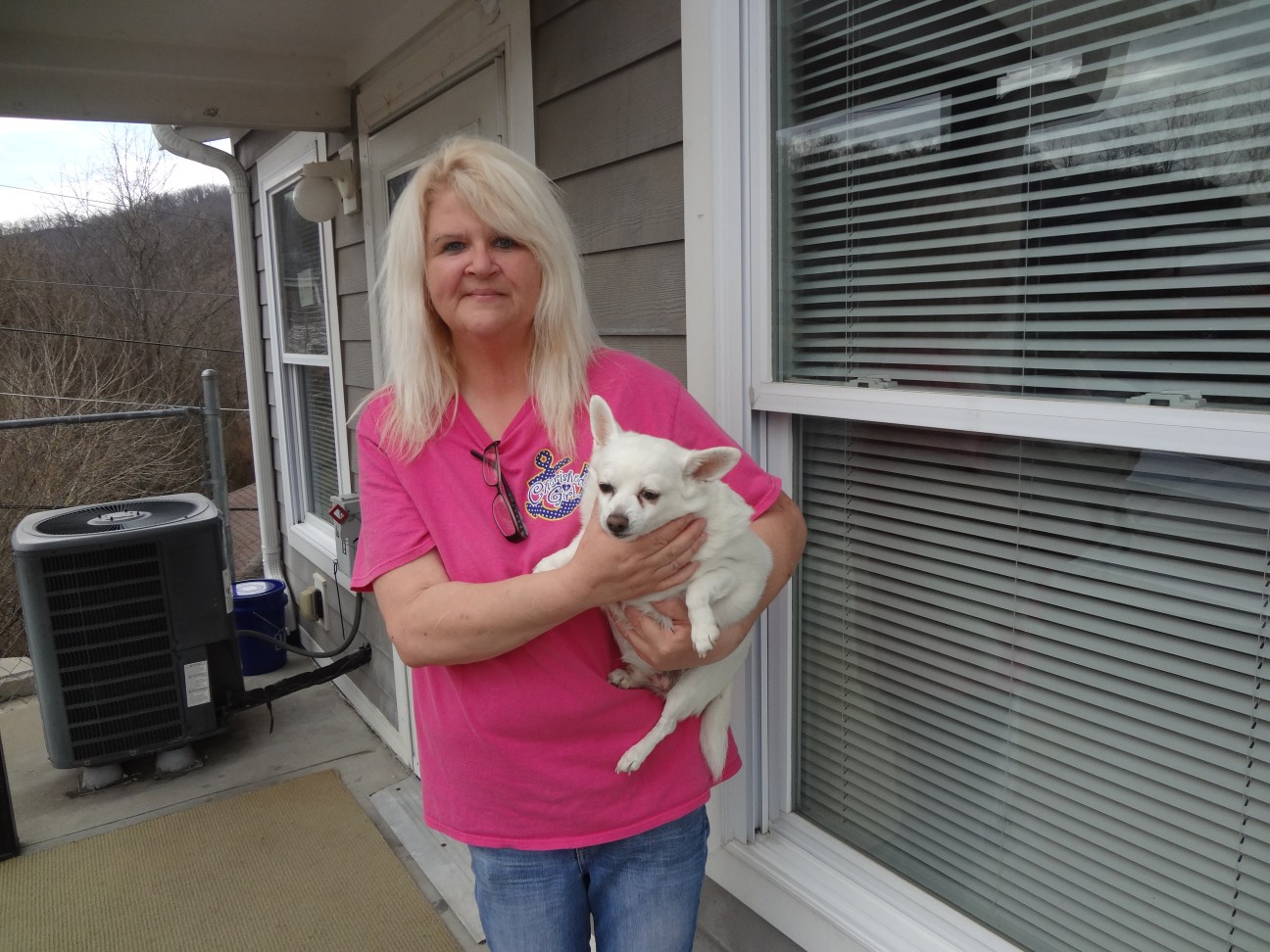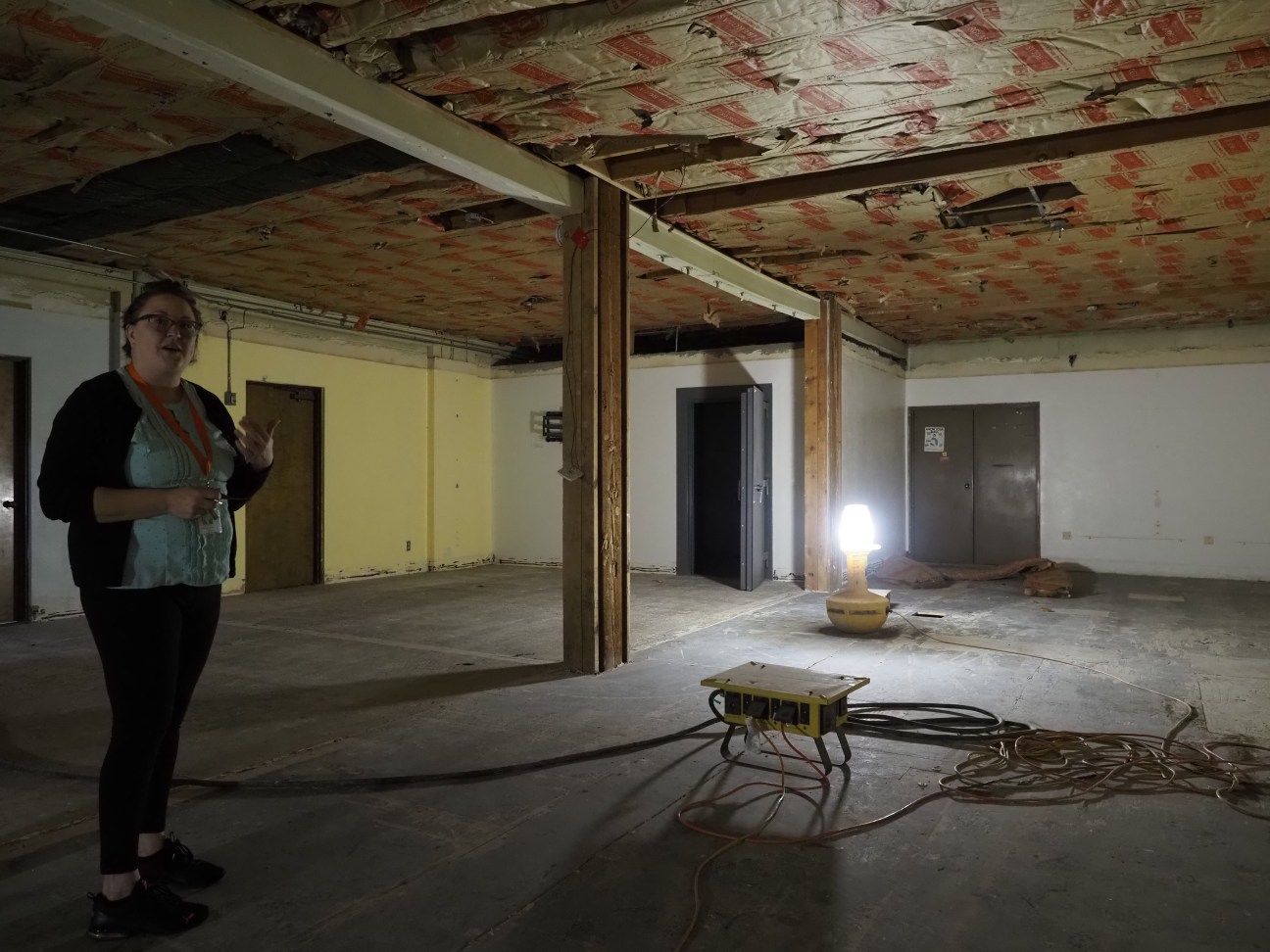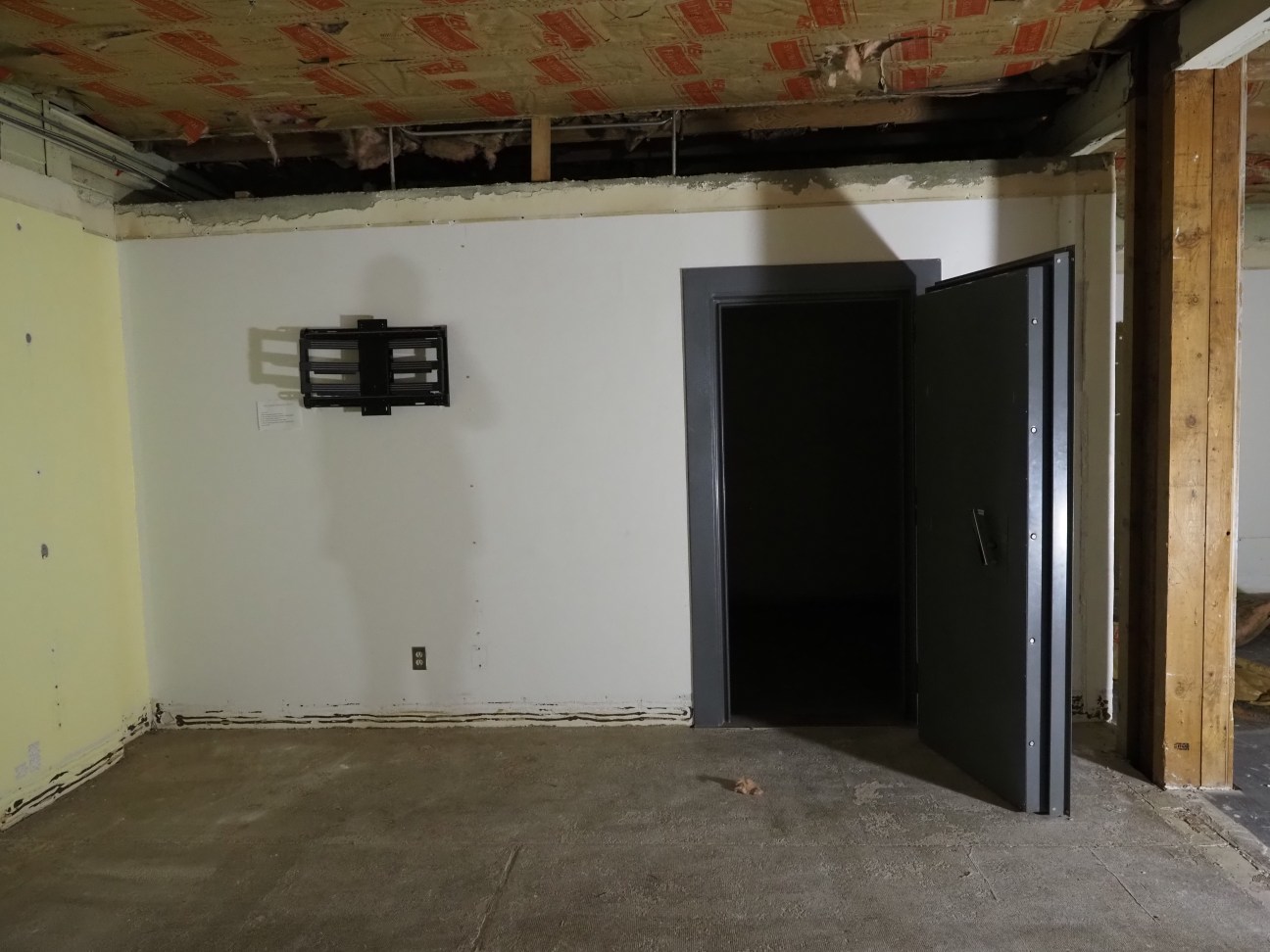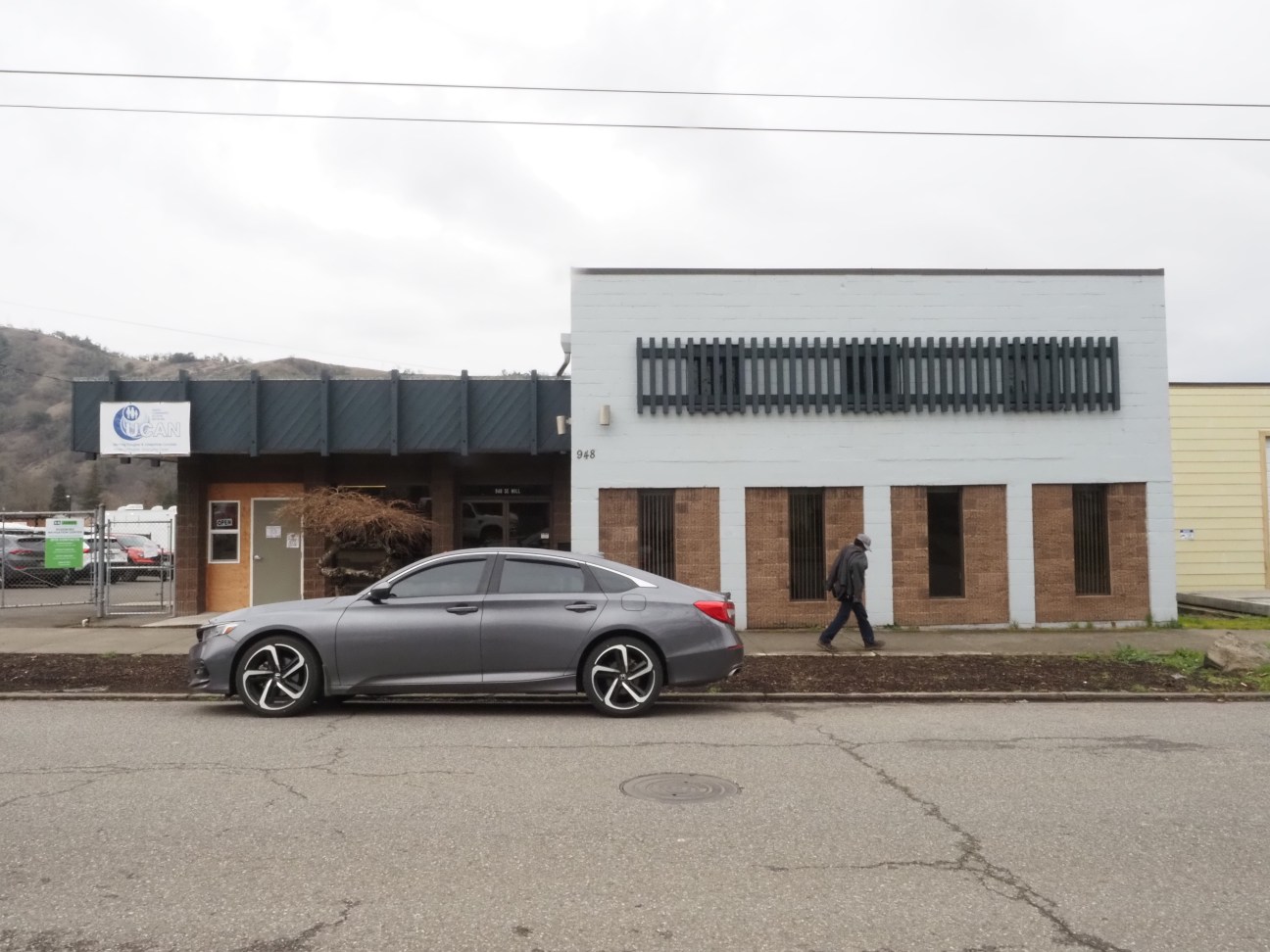Connecting state and local government leaders
Over the past two years, the rate of homelessness and housing insecurity rose faster in rural places than the country at large, but community-based organizations are in a unique position to offer solutions.
This article first appeared on The Daily Yonder and is republished here under a Creative Commons license.
What does homelessness in rural America look like?
In Southwest Oregon it looks like a city of under 25,000 residents with nearly 150 people on a waitlist for temporary housing.
In Eastern Kentucky, it looks like a severe shortage of affordable housing made immeasurably worse by a natural disaster.
For many tens of thousands of individuals and families in rural America, it looks like another anxiety-ridden night.
Homelessness in rural communities is generally less conspicuous than major cities like Portland, Oregon, or Los Angeles. “In rural communities, homelessness does tend to be more hidden,” said Adrienne Bush, director of the Homeless & Housing Coalition of Kentucky. “It expresses itself through housing insecurity, folks doubled up with friends or family, people couch surfing because they don’t have a place of their own.”
Nationwide, homelessness rose less than a half percent from 2020 to 2022 but almost 6% in rural communities. The reasons are many and varied.
A primary factor is, of course, the cost of housing, said Lance George, director of research and information at the Housing Assistance Council in Washington, D.C. Wages are often stagnant, he said, and housing costs keep rising.
Compounding the problem is the fact that because large-scale development is rare in rural communities, construction costs are often higher and there’s therefore less incentive for private investment.
But some rural communities are rising to the challenge, recognizing that getting people into at least temporary housing is critical to the health and well-being of the entire community.
George said working with community-based organizations inspires him.
“They’re incredibly resourceful and ingenious and work on shoestring budgets and get amazing amounts of work done. They provide amazing services for their communities. And that inspires my hope.”
Two such examples are found in rural Oregon and Kentucky.
Multiple Layers of Complexity
Roseburg (pop. 23,701), Oregon, is the county seat for Douglas County and claims to be the “Timber Capital of the Nation.” The county is big and primarily rural. It stretches some 100 miles from north to south and 200 from the Pacific coast inland to the east.
To put it in perspective, it’s bigger than the state of Connecticut.
Located on the southern edge of Roseburg’s downtown is the Gary Leif Navigation Center, a shelter that provides a place to sleep and a variety of wraparound services for the unhoused, which is the term many housing advocates prefer.
The county’s size adds multiple layers of complexity to caring for the unhoused – insufficient transportation, problems with locating individuals to reconnect them with family, and centralized social services – making access problematic to many outside Roseburg. And there are many who need help.
During the 2023 Point-in-Time Count, a nationwide annual event designed to estimate the number of unhoused people on a given night, 150 people showed up to be counted and another 200 were counted across homeless encampments in the county.
The center has been open since the summer of 2022 and currently provides 10 pods that offer an air-conditioned and heated safe environment for individuals to sleep and store their belongings. The pods are 8 feet square and contain some basic storage, beds, and a place to lock a bicycle on the outside.
The shelter’s guests can also cook and store their own food in a communal kitchen in a separate building.
It’s operated by the United Community Action Network. According to Shaun Pritchard, UCAN’s executive director, being a known entity in the rural community is one of the keys to success.
“Our ability to do this is really because we're a trusted community partner,” Pritchard said. “If you had somebody coming in from the outside to try to do this work, it probably wouldn't go over so well.”
“We've been here 50 years; we've run the public bus system, we run…the food bank. People know us, we're their friends and neighbors, and so they know we'll give it our best shot to try to do this work, and they don't expect perfection out of us.”
Nicole Brown, now a member of the shelter staff, experienced homelessness herself. When she heard about the job opening at the center, she jumped at the opportunity. “I wanted to be on the frontlines,” she said.
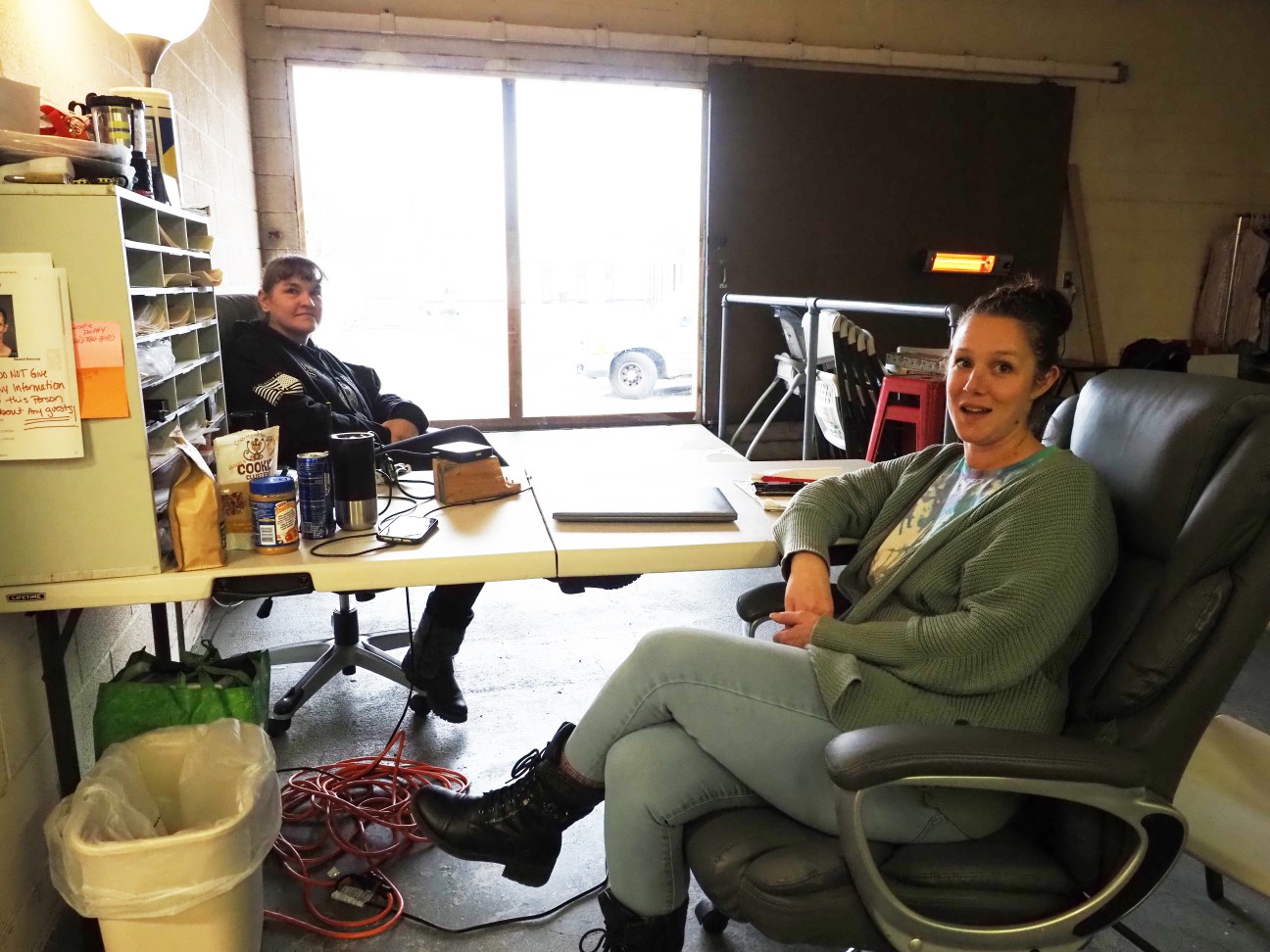
The pods are phase one of the project. Phase two is underway and includes remodeling the adjacent building into a congregate shelter with an additional 30 beds. Once complete, it will be a low-barrier shelter and the pods will be exclusively for family housing.
A low-barrier shelter means that almost anyone who comes through the door will be taken care of, regardless of their past or present problems and life circumstances, said Erica Kimrey, UCAN’s shelter program manager. Only people with Level 3 sex offenses can’t be served at the shelter.
Kimrey said there are 136 people on the waitlist for a spot in the pods. Of those, 39 are “medically needy” or have kids. Everyone currently being housed has an income, either through employment or Social Security, she said.
Kimrey said about half of the homeless population in Roseburg comes from the area. Others arrive via the I-5 corridor, many of them victims of wildfires or the pandemic. Still more are in the area seeking treatment at the local VA hospital.
“The VA plays a huge role in bringing people to this community because of how large it is and the fact that it provides not just mental health services, but it has housing and urgent care services,” Kimrey said.
Roseburg’s VA hospital serves about 62,000 veterans from three counties in Oregon and one county in California. Its massive, 200-acre campus has 32 buildings.
“Unfortunately, they don't have the amount of housing that is needed to serve their population,” Kimrey said. “We’re working with a pretty high level of veterans on the street.”
An extreme shortage of affordable housing is a primary source of homelessness in Roseburg.
Even two new housing developments with dedicated low-income units have not made a dent in the community’s housing needs. Jordan Jungwirth, UCAN’s housing and supportive services director, said the addition of these large complexes hasn’t had much impact on the problem.
According to Jungwirth there is not enough low-income inventory added, while the market-rate apartments remain too expensive for unhoused people. The two new apartment complexes available and two more planned will collectively add 400 units to Roseburg’s housing inventory.
East Kentucky: Putting Housing First
Across the country in the Central Appalachian hills of East Kentucky, local elected officials have been known to say that homelessness is not an issue. Angela Crase can inform them otherwise.
Crase is director of residential property management for Kentucky River Community Care. She said that in the most recent Point-in-Time Count, they were surprised to document more than 40 unhoused people in Perry County, one of eight rural Eastern Kentucky counties the agency serves.
Forty may not seem like a lot, but in a county of fewer than 30,000 people, and considering that those who are “hidden” – those in transit, tripled up with relatives or camped in dense wooded areas – probably number far more than that, it’s a source of concern.
Kentucky River Community Care is a nonprofit community mental health center, part of a network of such facilities the state established in the 1960s after John Kennedy signed the Community Mental Health Act of 1963. KRCC’s leadership recognized years ago the need to provide housing for those with behavioral health issues.
“The basic premise was that in order to have healthy clients, they had to have a clean, decent, affordable place to live,” said Phillip Hardin, KRCC’s facilities director.
Today, KRCC provides housing opportunities not only for those with behavioral health issues but anyone in need. A range of options are offered.
KRCC oversees 114 apartments throughout its region. It operates the Rose Building Apartments, a 17-unit facility in Breathitt County for people with behavioral health issues or intellectual or developmental disabilities. It has a rental assistance program. And it operates Knott County’s Hickory Hill Recovery Center, a peer-driven residential recovery facility for men.
Supportive services include assistance with day-to-day issues. “We work with them to be a good tenant,” Crase said.
KRCC has demonstrated that in pulling together resources in eight counties, it can execute big city-type projects, said Sarah Morgan, vice president and chief investment officer for Fahe, a network of more than 50 community-building Appalachia-based nonprofits, of which KRCC is a member. “It’s been phenomenal.”
“We follow a housing first model,” Crase said. This approach recognizes the need for the most fundamental necessities to be met before addressing substance use, mental health concerns or employment. “It's hard to work on those things when you don't have a stable place to live,” she said.
Stacy Miller, 45, is a Breathitt County native. She and Crase have known each other for years. Miller has experienced domestic abuse that resulted in a broken jaw, and she’s recently had several deaths in her family. She previously lived in the Rose Building but has moved into a KRCC-managed apartment with her cat, Snowball.
Miller gives a proud tour of her apartment. “It looks nice, Stacy,” Crase said. “It looks real nice in here.”
“I love it here,” Miller said.
July’s catastrophic flooding in Eastern Kentucky has dealt a heavy blow to housing options in the region. Affordable property was already so scarce, Hardin said. And now FEMA will be reevaluating the floodplain to determine where rebuilding or new development will be permitted.
Serendipitous Outcomes
In Roseburg, the money for the Gary Leif Navigation Center comes from the state of Oregon and is disbursed by the city. UCAN is contracted by the city to operate the shelter. This places the bulk of responsibility for dealing with the community’s homelessness issue on the city’s shoulders. Instead of funding organizations like UCAN directly, the state goes through the town hall. To keep the funding, the city must show results. Phase one of the shelter had to be completed within a year; they made it just in time.
The building under renovation for phase 2 of the navigation center development previously served as the headquarters of the Southern Oregon Log Scaling & Grading Bureau. Now, old money vaults will serve as laundry rooms and showers. Once completed, phase two of the project will increase the shelter’s bed capacity by 30. But more importantly, it will serve as a safe haven with basic amenities and access to wraparound services, as well as a stable address residents can use to receive mail, facilitating access to a range of services.
With the navigation center adjacent to the shelter, “we have a front-door service,” Kimrey said, allowing people to easily access services and receive referrals.
Kimrey tells of a man who’s received assistance for a number of years and now visits every day, often just to see a friendly face. One day while visiting, one of the coordinators helping him with his job applications received a call back from a potential employer. She put him right on the phone, Kimrey recalled. You can never know where that initial connection will lead.
Attainable
“I do believe that housing is a human right,” said Bush with the Homeless & Housing Coalition of Kentucky. “We have Medicaid,” she noted. Housing protection should likewise be provided. “For those for whom the private housing market isn't working, there should be an intervention.”
“When I first started this job, it was hard to get the media's attention about housing,” Bush said. “But one thing that I think has changed is that it’s part of the public awareness now – at the community level, but also there's a policy window that I think wasn't there 10 years ago.”
“I continue to gain hope and optimism from local community-based organizations,” Lance George affirmed. “They’re the ones that are going to solve this problem.”
Bush is convinced that a home for all in rural America is attainable. “I look at places like [Los Angeles] and D.C., and I'm like, ‘Oh, my God. The math doesn't work,’” she said. But in rural communities, where the will is there – and chronic homelessness is recognized as an issue somewhat other than a “lifestyle” choice – “I really firmly believe we can solve homelessness and housing insecurity.”
![]()
Taylor Sisk is a freelance reporter who had his work published in Kaiser Health News, National Geographic, and 100 Days in Appalachia, among others.
Jan Pytalski is the associate editor of The Daily Yonder.

NEXT STORY: New York City Mayor Keeps Creating New Offices
